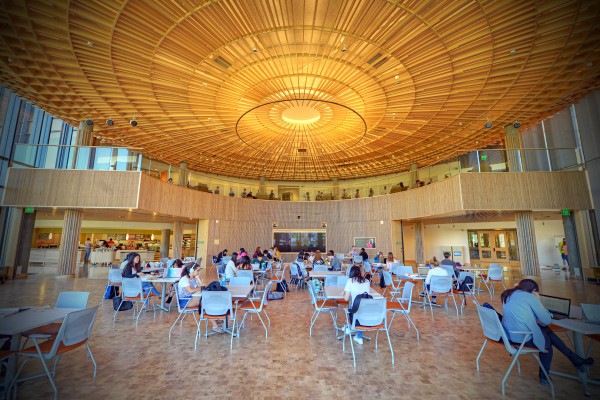Cells’ lack of glucose dulls immune system’s ability to fight cancers
Cancers have many strategies for avoiding attacks from the immune system. But the more scientists are able to understand about them, the more effectively they will be able to use the immune system to fight cancer. To that end, researchers at Washington University School of Medicine in St. Louis have identified a new strategy.
Study asks whether healthy diet or weight loss makes you live longer
Researchers at Washington University School of Medicine in St. Louis are recruiting volunteers for a study comparing the potential health and longevity benefits of the Mediterranean diet with those of a typical American diet. The study’s aim is to determine whether health and longevity are influenced more by healthy eating or by weight loss.
$7.3 million grant funds study of lung transplant rejection
With a new $7.3 million grant from the National Institutes of Health (NIH), a team of lung transplant surgeons and researchers at Washington University School of Medicine in St. Louis is investigating the immunological basis of lung transplant rejection, with the aim of improving the long-term outlook for patients.
Brown School’s Hillman Hall a ‘healthy’ building
Exercise. Eat right. Make time to relax. Most of us know what it takes to keep our bodies healthy. But what makes a building healthy? Amy Eyler, PhD, assistant professor at the Brown School at Washington University in St. Louis, wants to find out. Using the Brown School’s new Hillman Hall as a laboratory, Eyler […]
Beet juice boosts muscle power in heart patients
Building on a growing body of work that suggests dietary nitrate improves muscle performance in many elite athletes, researchers at Washington University School of Medicine in St. Louis found that drinking concentrated beet juice — high in nitrates — increases muscle power in patients with heart failure.
Siteman Cancer Center to expand St. Charles County location
Siteman Cancer Center plans to expand cancer services and facilities at Barnes-Jewish St. Peters Hospital in St. Charles County. The $13.1 million project will expand the existing facility from 19,500 square feet to 30,750 square feet. That is in addition to expansion projects already underway at Siteman’s main campus at Washington University Medical Center and at Siteman Cancer Center-South County.
Combo of 3 antibiotics can kill deadly staph infections
Three antibiotics that, individually, are not effective against a drug-resistant staph infection can kill the deadly pathogen when combined as a trio, according to researchers at Washington University School of Medicine in St. Louis. They have killed the bug — methicillin-resistant Staphylococcus aureus (MRSA) — in test tubes and laboratory mice, and believe the same strategy may work in people.
Viruses flourish in guts of healthy babies
Bacteria aren’t the only non-human invaders to colonize the gut shortly after a baby’s birth. Viruses also set up house there, according to new research led by Lori Holtz, MD, at Washington University School of Medicine in St. Louis.
On Twitter, hookah smoking seen as positive
Positive mentions on Twitter about hookah smoking may promote the assumption that it is less harmful than smoking cigarettes even though the Centers for Disease Control and Prevention reports that hookah smoking has many of the same harmful toxins and carries the same health risks, according to new research at Washington University School of Medicine in St. Louis led by Melissa J. Krauss, seen here with a hookah pipe.
New pharmacy, medical school partnership seeks better, safer medications
St. Louis College of Pharmacy and Washington University School of Medicine in St. Louis are joining forces to find better, safer and more effective ways to use prescription medications to improve health. Researchers from the two institutions are collaborating to create the Center for Clinical Pharmacology. The center’s director will be Evan D. Kharasch, MD, PhD, the Russell D. and Mary B. Shelden Professor of Anesthesiology and professor of biochemistry and molecular biophysics at the School of Medicine.
Older Stories




